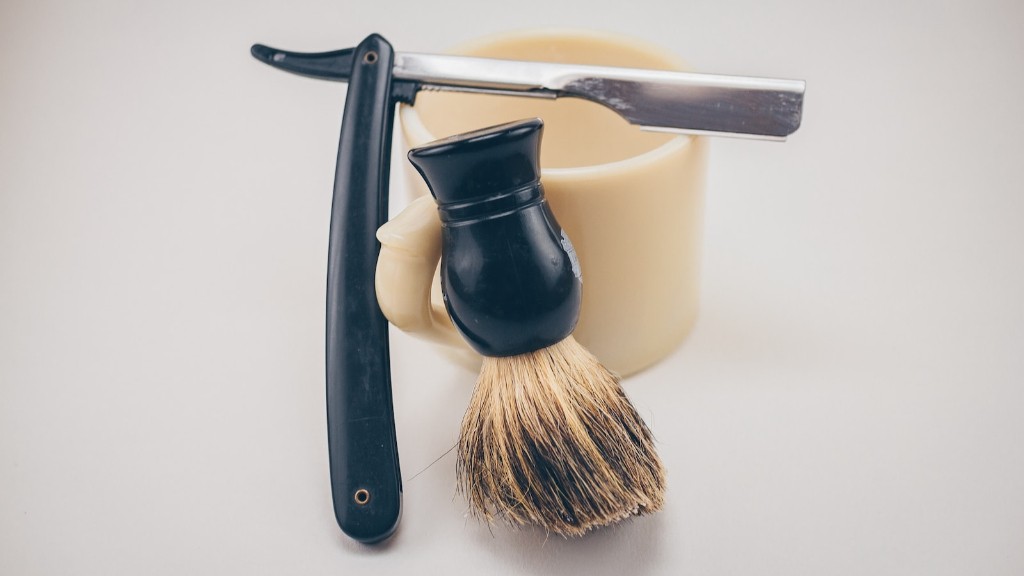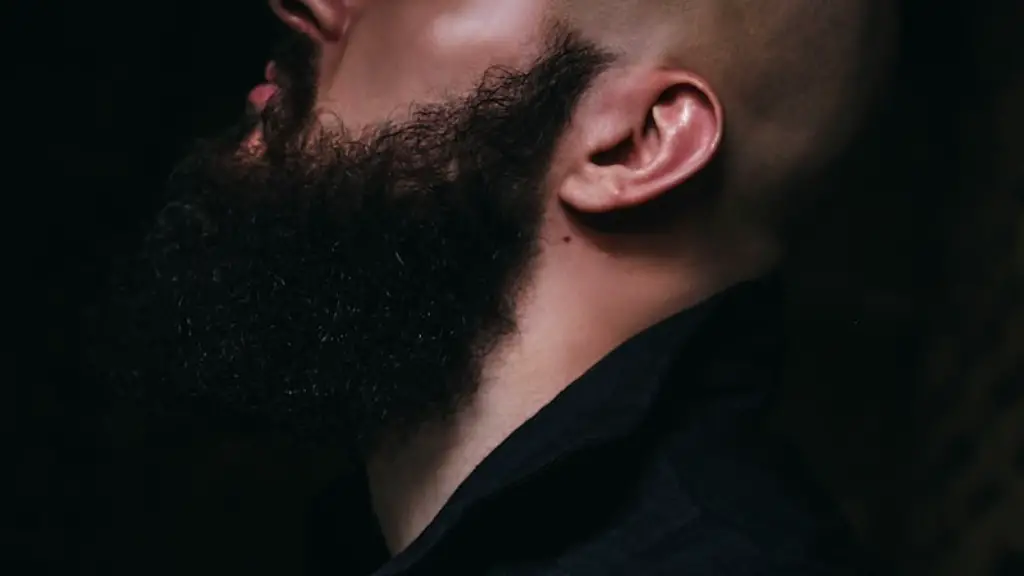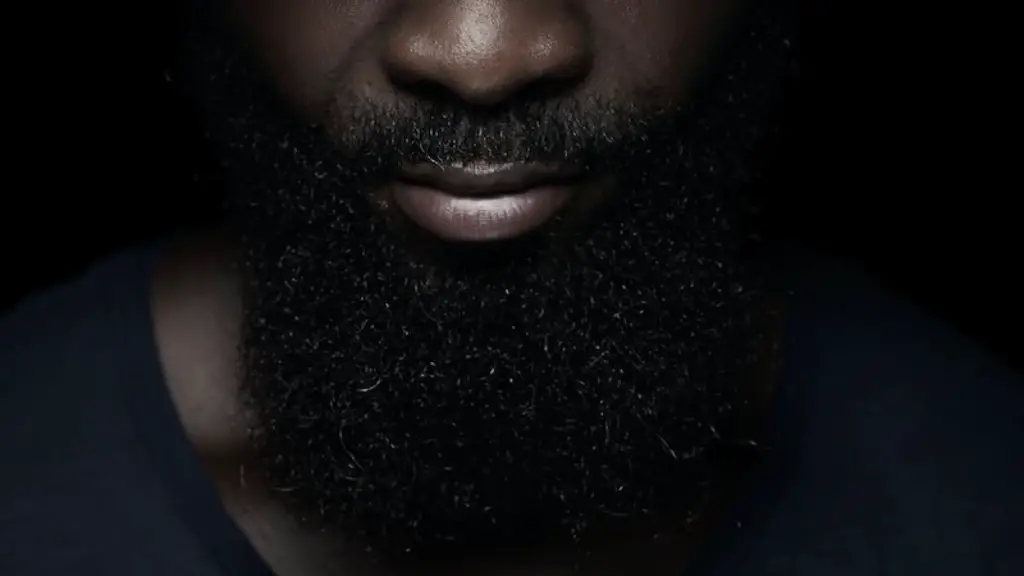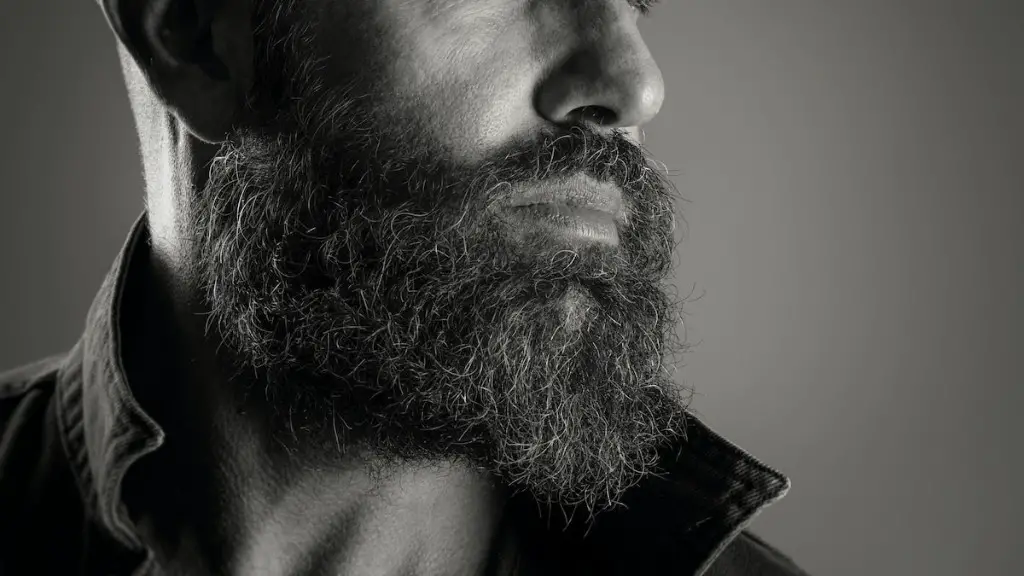Some people believe that beards are a sign of maturity and wisdom. For many men, growing a beard is a right of passage. It can be a source of pride and self-confidence. Unfortunately, not all men are able to grow a beard. There are a variety of reasons why a man’s beard might not grow in. It could be due to health conditions, genetics, or even certain medications. Whatever the reason, it can be frustrating for a man who wants to grow a beard but can’t.
I don’t know why my beard isn’t growing. I have tried everything I can think of, including taking supplements and using special shampoos and conditioners, but nothing seems to work. I even growing a mustache to see if that would help, but it didn’t. I’m really frustrated and disappointed.
Why is my beard not growing on my face?
There are a few things that can cause patchy beards, but the four most common are age, genetics, alopecia areata (balding), and hormonal imbalances. Age and genetics are two of the most common, and most people have little control over them. However, there are solutions you can try to promote patchy beard growth and grow a fuller beard.
If you’re suffering from patchy beard growth, try using a beard oil or balm to stimulate growth. You can also try supplements like biotin or fish oil, which are known to promote hair growth. If you have alopecia areata, you can try using minoxidil, which is a medication that is known to promote hair growth. Lastly, if you have a hormonal imbalance, you can talk to your doctor about options to help balance your hormones and promote beard growth.
Testosterone and DHT are hormones that are responsible for beard growth. Having higher levels of these hormones will result in a faster, thicker, and better beard. However, having low levels of testosterone can negatively affect your beard growth. If you have clinically low testosterone levels, you may need to see a doctor, but most men can increase these levels naturally by living a healthy lifestyle.
How can I increase my beard growth
If you’re looking to grow a healthier, fuller beard, these tips may help:
1. Exercise: Exercise has numerous benefits for your overall health, and this includes your beard. Exercise can help improve circulation and increase blood flow to the hair follicles, which can promote beard growth.
2. Diet: Eating a healthy, balanced diet is important for your overall health and can also benefit your beard. Good nutrition can help improve the appearance of your beard and make it healthier.
3. Beard growth vitamins and supplements: There are many vitamins and supplements that are specifically targeted towards beard growth. These can help improve the health of your beard and promote growth.
4. Sleep: Sleep is essential for optimal overall health, and this includes your beard. Getting enough sleep can help improve the appearance of your beard and make it healthier.
5. Washing and moisturizing: It’s important to keep your beard clean and moisturized. Washing your beard with a mild shampoo and conditioner can help keep it healthy, and using a beard oil or balm can help keep it moisturized.
The study found that there was no relationship between beard length and testosterone levels or dominance. This means that there is no evidence to support the hypothesis that beards are honest signals of the beard owners’ testosterone levels and dominance.
At what age does beard grow fully?
Most men will have a full beard by their early 20s, but some may need to wait until they hit 30 to reach full beard growth. Puberty might initiate the facial hair growing process, but how fast and thick your beard grows will depend on factors that we’ll discuss below, including genetics and hormone levels.
Biotin is important for your beard because it helps your body to produce keratin, which is a key protein in hair growth. If you develop a biotin deficiency, you may find it difficult to grow out your beard. Luckily, you can boost your body’s biotin levels by eating foods that are rich in Vitamin B complexes, such as almonds.
How do I make my beard grow testosterone?
Testosterone is the hormone responsible for beard growth, so keeping your levels within a healthy range is key to growing a thick, full beard. Exercising, eating well, getting enough sleep, and exfoliating can all help keep your testosterone levels stable and promote beard growth.
If you’re looking to improve the appearance of your beard, then beard oil is a product you should consider. While it’s not been scientifically proven to make beards grow faster, it can make them look fuller, softer, and lusher. If you’re struggling with dry, brittle, or patchy beard hair, then beard oil can also help to moisturize and nourish the hair follicles, promoting healthy growth.
What races don’t grow facial hair
There have been studies conducted that show that a person’s ethnicity can affect the growth pattern of their facial hair. In general, it has been found that Chinese, Mexican, and Native American men tend to have less facial hair than Caucasian men. This information could be useful for someone who is trying to determine how to best style their facial hair.
Low testosterone is a common problem that can often be helped with lifestyle changes and medications if needed. Certain foods, like fish, leafy greens, eggs, or even cocoa products, may help increase testosterone to a healthy level. Fatty fish, dark leafy greens, cocoa products, avocados, eggs, berries, cherries, and pomegranates are all good choices. Shellfish is also a good option.
Does trimming increase beard growth?
Beard care is important for many reasons. Not only does it make your beard look its best, but it can also promote healthy growth. Trimming away dead hair and uneven patches can help encourage new, healthy growth. Additionally, keeping your beard trimmed and free of split ends can help prevent future problems. So if you’re looking to promote healthy beard growth, be sure to add trimming to your routine.
There are a few things that can affect how thick and coarse a beard will be. Age is definitely one of them – most beards will continue to develop until around the age of 30. Ethnicity can also play a role – some ethnicities are more likely to have thicker, coarser beards than others. So if you’re 18 and wondering why you don’t have a full beard yet, it just may not be time. Be patient – it’ll probably happen eventually!
What does a 2 month beard look like
If you’re looking to grow a beard, the key is to be patient. On average, facial hair grows about half an inch every month. So a 2 month beard is typically around an inch long. That means you can start doing some light, careful trimming. But beware of going crazy – overdoing it on the trimming at this point is bad news.
There are a number of reasons that can affect the growth of facial hair, one of these are; low testosterone levels which are usually and directly responsible for low growth of facial hair. It is also seen that certain races or people in a certain part of the world generally have less facial hair growth.
What pills can i take to grow a beard?
There are a few treatments that may help improve the growth of facial hair, but there is no medication that is specifically approved for this purpose. Minoxidil and finasteride are two medications that have been shown to improve hair growth in general, and they may help to improve the growth of facial hair. However, these medications come with a risk of side effects, so they should be used only under the care of a healthcare provider. Some lifestyle changes, such as eating a healthy diet and getting adequate sleep, may also help to improve facial hair growth.
Beard supplements can be a great way to improve beard growth and achieve positive results. However, it is important to make sure you purchase products with quality ingredients. Popular vitamins like biotin can help improve overall beard health, but there are also a few additional factors to consider when choosing a supplement. Make sure to research products thoroughly before making a purchase to ensure you are getting the best possible product for your needs.
Conclusion
There could be many reasons for why your beard isn’t growing. It could be genetics, hormones, or even just a lack of nutrients. If you’re not sure why your beard isn’t growing, it’s best to consult with a doctor or dermatologist to find out the root cause.
There are a few reasons why your beard may not be growing as you would like. It could be a genetic issue, or it could be that you are not providing your body with the right nutrients. Also, if you are constantly shaving, this could also be a contributing factor. Whatever the reason may be, there are a few things that you can do to try and encourage beard growth. These include taking supplements, eating a healthy diet, and avoiding shaving.





